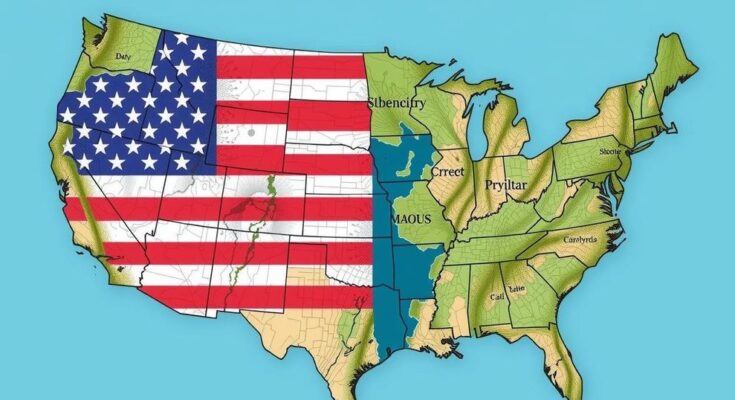Donald Trump has expressed plans to withdraw the U.S. from the Paris Climate Agreement again. Unlike the first withdrawal process, which took years, a new exit could be faster. Experts caution this move may erode global trust and inspire other countries to exit, while supporters assert it would strengthen U.S. sovereignty and reduce economic burdens. The potential withdrawal raises questions about the future of U.S. participation in international climate agreements.
Former President Donald Trump has indicated his intention to withdraw the United States from the Paris Climate Agreement if he is re-elected. Unlike the initial withdrawal, which was a lengthy process due to the treaty’s regulations, a second departure could be expedited. The Paris Agreement, a legally binding treaty formed in 2015, involves nearly 195 parties focused on international climate cooperation. Following Trump’s 2017 election, the U.S. could not withdraw until three years had lapsed, officially exiting in late 2020. Biden reinstated U.S. participation in 2021, and Trump has expressed that he would move to withdraw again, suggesting a different timeline this time. Experts warn that a second withdrawal could erode trust among global leaders and potentially incite other nations to follow suit, as Argentina’s President Javier Milei has voiced similar sentiments. In contrast, advocates for withdrawal argue that it would enhance U.S. sovereignty and alleviate economic burdens associated with the treaty’s emission reduction commitments. They suggest submitting the treaty to the Senate for ratification to complicate any future reentry efforts. Furthermore, some propose that Trump’s administration should also consider leaving the U.N. Framework Convention on Climate Change to solidify a more permanent exit from international environmental agreements. United Nations Secretary-General António Guterres emphasized the importance of U.S. participation in the Paris Agreement for its survival and effectiveness in combating climate change.
The Paris Climate Agreement, established during the 2015 U.N. Climate Change Conference, aims to unite global efforts against climate change. The United States, under President Obama, entered the agreement in 2016, which mandates a minimum three-year commitment for any party wishing to withdraw. Since taking office, both President Trump and President Biden have expressed diverging views on the U.S.’s role in the agreement, reflecting broader political debates surrounding climate policy and international cooperation on environmental issues.
In summary, if elected, Donald Trump’s potential second withdrawal from the Paris Climate Agreement could differ markedly from the first. While critics of the withdrawal highlight the risks of diminished international trust and potential exodus of other nations, proponents argue for national sovereignty and economic benefits. The re-exit could also set a challenging framework for any future U.S. administrations wishing to rejoin or alter terms of participation in the climate accord.
Original Source: www.foxnews.com




